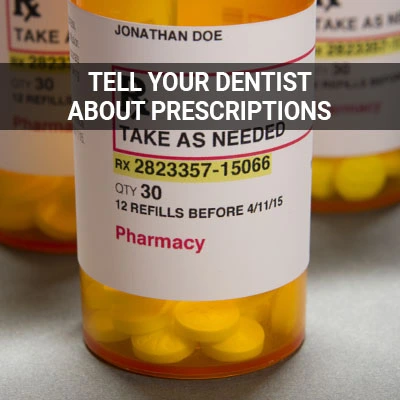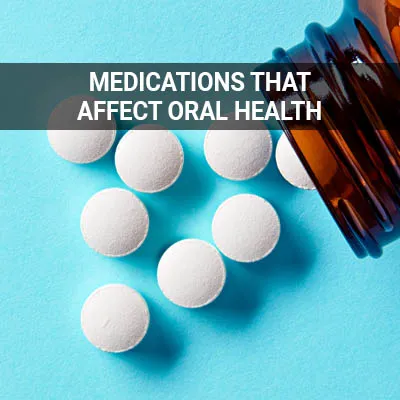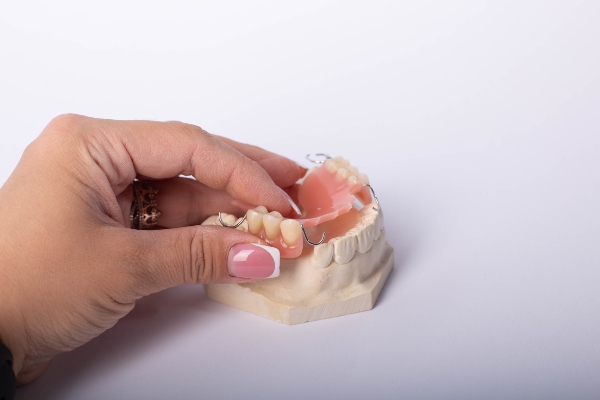Dental Health and Preexisting Conditions New York, NY
Dental health and pre-existing conditions can impact each other, along with a person's overall health and well-being. People can benefit from dental care that addresses their oral health history and pre-existing conditions that may affect it. Do not hesitate to seek treatment for their dental health and reduce the risk of exacerbating conditions affecting their overall health.
Elliott Ostro, DMD provides dental health plans for pre-existing conditions in New York and the surrounding area. Our team can help you improve your oral and overall health. Call us today at (212) 847-3833 to learn more about our services or schedule an appointment.
Oral-Systemic Health and Preexisting Conditions
Gum disease, also known as periodontal disease, may be considered the primary component of the oral-systemic connection. The mouth is one of the primary entryways into the digestive and respiratory tracts, making it a natural breeding ground for bacteria. Most of such bacteria are harmless, but poor oral hygiene may allow them to multiply to dangerously high levels. At this point, the mouth becomes at risk for several oral infections. Inflammation will then enter the bloodstream, weakening the body's immune system.
Oral health is most notably linked to preexisting heart conditions and diabetes. However, others involve pneumonia, rheumatoid arthritis, and more. Research has shown that heart conditions and periodontitis have a positively correlated relationship and that diabetes and oral health exist bidirectionally. As such, receiving treatment for one condition often treats the other. Poor oral hygiene can increase elderly patients' risk of pneumonia. Furthermore, rheumatoid arthritis and periodontal disease are both linked to severe inflammation — making patients more susceptible to further health problems.
“Gum disease, also known as periodontal disease, may be considered the primary component of the oral-systemic connection.”
Managing Preexisting Conditions and Oral Health
Just as oral health may affect other aspects of a patient's health, certain systemic conditions may also influence a patient's oral health. Neglecting one aspect of one's medical care can easily cause a never-ending cycle of health issues. As such, the very nature of the oral-systemic connection can sometimes necessitate changes to a patient's treatment plan — dental or otherwise. For instance, patients who have had a heart attack, heart failure, high blood pressure, stroke, or even chest pain (also known as angina) should seek their cardiologists' approval before scheduling any dental treatments.
Once approved, patients should tell their dentists about any heart conditions they have, procedures they have undergone, and medications they are taking to best allow the team to plan for any potential emergencies. This is true regardless of any systemic condition a patient may have. We can only provide optimal care if we know the full extent of our patients' unique medical histories and preexisting conditions. Otherwise, patients may run the risk of further aggravating both their oral and overall health.
“Neglecting one aspect of one’s medical care can easily cause a never-ending cycle of health issues.”
Finding Plans That Cover Pre-existing Conditions
Every dental insurance plan is different. While medical insurance plans have laws that enforce coverage for all conditions, dental insurance does not. Dental insurance aims to help people prevent dental issues from worsening and requiring more extensive and expensive treatment. For this reason, many dental insurance policies have clauses for pre-existing conditions and waiting periods to prevent people from purchasing insurance only when they need expensive treatment.
Although many plans will cover minor pre-existing conditions, such as cavities, some plans may not provide coverage for more serious pre-existing conditions. When looking for a dental insurance plan, people should look carefully at what each provider considers a pre-existing condition. They should also determine if the out-of-pocket expenses will fit into their budget.
“Although many plans will cover minor pre-existing conditions, such as cavities, some plans may not provide coverage for more serious pre-existing conditions.”
Check out what others are saying about our dental services on Yelp: Dental Health and Preexisting Conditions in New York, NY
Addressing Preexisting Conditions in General Dentistry
Studies have shown that general health has a bidirectional relationship with oral health, meaning that good health is impossible without a healthy mouth. Some conditions may put patients more at risk for periodontal disease. At the same time, periodontal disease may further aggravate certain conditions. As a result, patients require comprehensive treatment for optimal care. General dentists can treat isolated oral health conditions. However, having access to the patient’s previous and current medical history can inform the dentist on how their oral health impacts their overall health and vice versa.
With the patient’s permission, general dentists can also work with their primary medical provider to personalize their treatment plan to their unique needs. This allows the dentist to address any warning signs of oral disease that they may have otherwise missed. Comprehensive care between dental and medical providers can also help avoid any factors that may aggravate the patient’s oral or overall health.
“Studies have shown that general health has a bidirectional relationship with oral health, meaning that good health is impossible without a healthy mouth.”
Questions Answered on This Page
Q. What preexisting conditions are linked to oral health?
Q. How do preexisting conditions affect dental care?
Q. How to find plans that cover pre-existing conditions?
People Also Ask
Q. How do lifestyle choices affect dental health?
Q. What should patients do if they have sensitive teeth?
Q. How can someone find out what procedures their dental insurance covers?
Q. What are some dental health conditions that can form during pregnancy?
Frequently Asked Questions
Q. What are the risk factors associated with gum disease?
A. One of the main risk factors for gum disease is plaque from insufficient oral hygiene. Smoking, tobacco usage, and medications can also contribute to gum disease. People with certain genetic markers, systemic diseases, or a tendency to clench or grind teeth may also have an increased risk of developing gum disease.
Q. What are the symptoms of a cavity?
A. Cavity symptoms will vary depending on their location and their severity. The beginning stages of tooth decay may not cause any symptoms. However, as the decay progresses, people may experience tooth pain, sensitivity, visible holes or pits, tooth discoloration, or pain when biting.
Q. What happens if I do not have a cavity treated?
A. Cavities can lead to various complications, including pain, swelling, chewing issues, and teeth shifting. Without treatment, a cavity can progress into an abscess or a pocket of pus. This infection can spread and even become life-threatening in extreme cases.
Q. What are the symptoms of gum disease?
A. Healthy gums appear pink and fit tightly around teeth. People with gum disease may have red or purplish and swollen gums that bleed easily. Teeth may also appear longer as the gums recede and the periodontal pockets grow in size.
Q. What happens during scaling and root planing?
A. Scaling and root planing treats chronic gum disease. During scaling, we will remove the plaque from teeth and pockets between the teeth and gums. Root planing involves smoothing out the tooth roots to help the gums reattach to teeth.
Dental Terminology
Call Us Today
If you live in the New York area, call 212-847-3833 for an appointment in our New York office.
Helpful Related Links
- American Dental Association (ADA). Glossary of Dental Clinical Terms. 2025
About our business and website security
- Elliott Ostro, DMD was established in 2004.
- We accept the following payment methods: American Express, Cash, Check, Discover, MasterCard, and Visa
- We serve patients from the following counties: Westchester County, New York County, Kings County, Bronx County, Richmond County, Queens County, Suffolk County and Nassau County
- We serve patients from the following cities: New York, Manhattan, Jersey City, Brooklyn, Bronx, Queens, Staten Island, Long Island, West New York and Westchester
- Norton Safe Web. View Details
- Trend Micro Site Safety Center. View Details
Back to top of Dental Health and Preexisting Conditions












